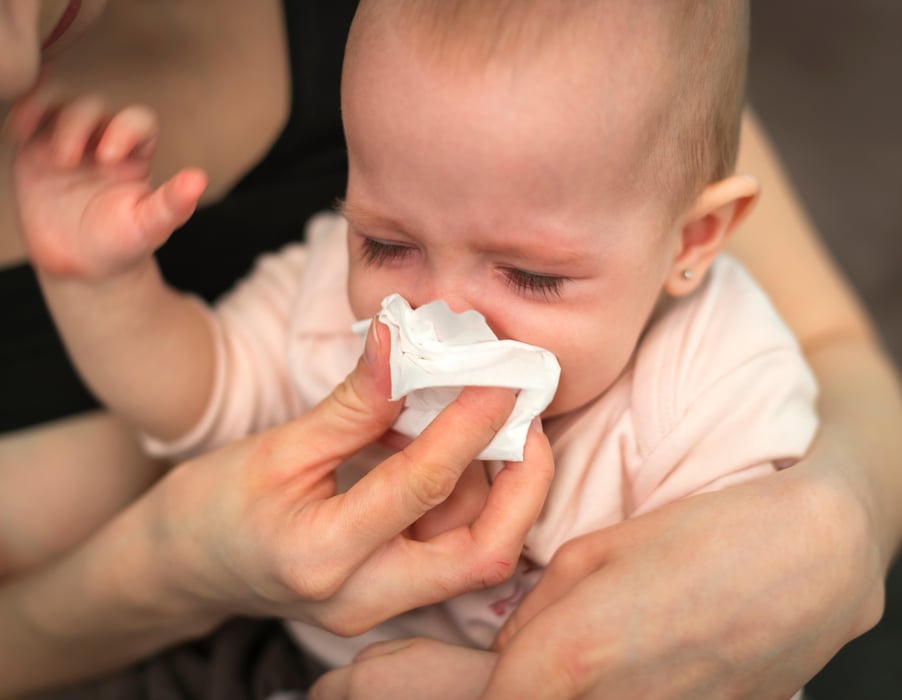Doctors Answer Your Questions About RSV

FRIDAY, Oct. 28, 2022 (HealthDay News) -- While a potential COVID winter surge and the impending flu season get a lot of attention, doctors are worried about another virus.
This one is RSV -- short for respiratory syncytial virus -- and hospitals across the country are seeing a surge of cases in infants and young children. The virus can be especially concerning in those who are 6 months and younger.
As children's hospitals across the United States are seeing a troubling surge in this common illness, two experts at Cedars-Sinai in Los Angeles offer information on what to watch for, as well as treatment options.
"Young babies can start looking a bit more lethargic and have poor feeding. That can be the first signs that they are in distress," said Dr. Priya Soni, pediatric infectious disease specialist at Cedars-Sinai Guerin Children's.
"They may or may not have a fever, and they can start having some trouble breathing," Soni said in a hospital news release. "Those are the early signs parents need to look for -- lethargy, loss of appetite and trouble breathing."
The virus dramatically increases secretions in the airways, making it dangerous for infants, said Dr. Ira Wardono, pediatric hospitalist at Providence Cedars-Sinai Tarzana Medical Center in Tarzana, Calif.
While older children and adults can cough or sneeze out these secretions, infants cannot.
"Their muscles are not strong enough to cough up all the extra fluid. It's almost like they are drowning in their secretion, and that's what causes the trouble breathing," Wardono said in the release. "Parents or health care providers need to do the job for them by suctioning the airways, either at home or, if needed, in the hospital."
Besides suctioning, care for an infant or child with RSV might include providing IV fluids. Some little ones may get dehydrated because it’s hard to feed when they're so stuffed up.
Some babies may also need oxygen support as well.
"The most important thing is to know when to get help for your child: if they’re having trouble breathing, not able to eat or appear more tired than usual," Wardono said.
A monoclonal antibody called palivizumab is recommended for high-risk babies. These include infants who are premature, or who have chronic lung disease or a significant congenital heart condition, Soni said.
Preventive treatment would be given as a series of vaccines. Parents can talk to their child's provider about this option.
"Health care experts are worried about the confluence of RSV, flu and COVID-19 as we move into the winter," Soni said. "The overlap of these three viruses, as well as others, is definitely a big concern for the next few months."
Doctors are already seeing patients testing positive for more than one virus, Wardono said, recommending that parents make sure kids get their flu shots and COVID-19 boosters where appropriate.
Parents can also make sure to wash their hands frequently and to have their children do the same.
Children who are in school or a play group should change their clothes when they come home before interacting with infants, the doctors recommended.
More information
The U.S. Centers for Disease Control and Prevention has more on RSV.
SOURCE: Cedars-Sinai, news release, Oct. 25, 2022
Related Posts
Patient Experience Scores for Hospital Care Decreased During COVID-19
FRIDAY, Sept. 1, 2023 (HealthDay News) -- During 2020 to 2021, there was a...
Understanding How COVID Can Trigger Loss of Smell
THURSDAY, May 5, 2022 (HealthDay News) -- It has happened to millions during the...
AHA News: Heart Problem Could’ve Ended His College Basketball Career Before It Began. It Didn’t.
WEDNESDAY, Feb. 15, 2023 (American Heart Association News) -- When shooting...
ACR: Low-Dose Hydroxychloroquine Tied to More Hospitalizations for Lupus Flares
FRIDAY, Nov. 18, 2022 (HealthDay News) -- Patients with systemic lupus...
